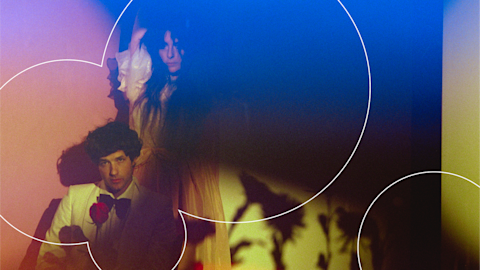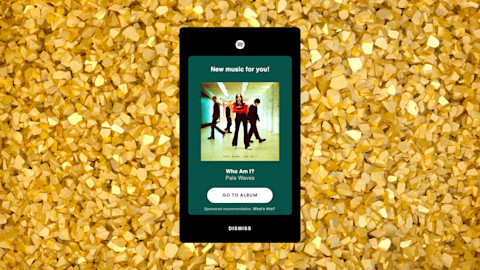Last year, Spotify’s Social Impact Team partnered with Berklee College of Music to launch the EQL Studio Residency—a full-time, paid program that provides hands-on experience, networking opportunities, and mentorship to emerging, women-identifying studio engineers and producers. While the 2018 EQL residency was recognized by USC Annenberg’s Inclusion Initiative (organized following the school’s reporting on the plight of women in music) as a promising solution to an industry fraught with gender inequality, the work isn’t done. That’s why this year, we’re proud to introduce the roster of the second annual EQL Residency, in partnership with Berklee College of Music. Starting this month, these three up-and-coming audio professionals will take on positions at our Secret Genius Studios in London, Los Angeles, and Nashville.
London-based songwriter, producer, and engineer Sophie Ackroyd is a graduate of Oxford University, where she studied English literature before beginning her musical career at the Institute of Contemporary Music Performance, working at Battersea Park Studios and collaborating with artists from across the globe.
Montreal native and graduate of Berklee College of Music (with a concentration in music production and engineering), Alissa Faratro has, in addition to her studio work, assisted and interned for Grammy-winning vocal producer and engineer Simone Torres, and worked as a stage manager and production assistant for some of Berklee’s biggest concerts.
Hailing from Northern Virginia, Jessica Taylor is a recent Berklee graduate with a music production and engineering concentration. She has attended master classes with the acclaimed Ebonie Smith, Ann Mincieli, and Simone Torres, and has worked as a live sound engineer at Square Root Cafe and as an office assistant at the Berklee Guitar Department, and she's completed six studio internships.
We spoke with these three women to get insight into their personal journeys, the challenges that come with being a woman in the field, and what they’re most excited to do during their time at EQL 2019.
Spotify for Artists: What initially attracted you to audio work?
Sophie Ackroyd: For me it was the creative freedom. Starting out as a songwriter, the ability to record and produce opened up so many possibilities. Before then, it felt like no one else could create the sounds I heard in my own head, so producing and engineering was the best and fastest way to realize the vision I had for the music I was making.
Alissa Faratro: I actually started off as a singer. I was recording demos and songs in the studio and I got really fed up with not being able to communicate what sound I was looking for to the engineer. Every time I was in the studio, I asked questions and tried to learn as much as I could because I realized that the recording or mix engineer has as much creative power as an artist and songwriter. I was so frustrated every time I left a session, having heard the song sound amazing through the studio speakers, and then played it in the car and it sounded crappy. People assume that the “technical” side of the industry isn’t creative. Not only can the engineer and producer’s intuitions shape a song, they can also make it or break it, and I wanted to be a part of that side of the creative process as well.
Jessica Taylor: Not being able to remake songs well. When I played guitar, I would always get impatient and just want to make songs of my own, but I didn’t really know how and the finished product was always trash. Learning how to make better-quality music started everything off for me.
![Sophie Ackroyd, South London-based Producer]()
Sophie Ackroyd, South London-based Producer
How did you find your way into the field?
Ackroyd: I got an internship at Battersea Park Studios (formerly Sphere) shortly after I left music college, and I went on to be studio manager there for two years. Since then, I've spent more time in studios than out of them. I never had any “formal” training as such, but quickly picked things up on the job when I started to freelance as assistant engineer at a couple of different studios around London, including Red Bull Studios, alongside renting my own studio space for writing sessions.
Faratro: My introduction to audio work really came from the desire to take control and learn how to communicate my vision to the people I collaborated with. I decided to take a Pro Tools and a mic placement class back home and realized pretty quickly that I had opened up a door to a whole different dimension I hadn’t been privy to. It’s around that time that I heard of Susan Rogers’ work—engineer for Prince, Barenaked Ladies, etc., and professor at Berklee College of Music. I decided to enroll at Berklee specifically with the intention of applying for the music production and engineering major. That is where I truly discovered the field and fell in love with this side of the industry.
Taylor: I got started in the audio field when I was around 14. I already played guitar and really enjoyed that, but I wanted to learn more about what goes on behind the scenes of a song or a show. I was able to find a small studio that offered lessons in live sound and audio engineering that was a couple towns over from mine, and from there I just kept up lessons and internships in my area.
What are some of the challenges you've faced in your career as an audio professional?
Ackroyd: Why I love working in audio is that it challenges your whole brain. You're using that left side, [the] logical brain to solve very technical problems whilst at the same time also being artistic and creative. Being a female audio professional brings its own set of challenges, and I'm pretty used to people not expecting you to be the producer or engineer on the session, but I think that's a case of visibility. There needs to be more of a spotlight on women making music until it becomes more normalized.
Faratro: My biggest challenge has undoubtedly been self-doubt. It’s really easy to compare myself to others, to feel like I’m not good enough or that maybe this isn’t for me. Sometimes it’s hard to stay confident about my skills and my work, but I found that putting in the work and being bold have been the best remedy. Obviously there are people—men and women—that doubt my skills solely based on the fact that I am a woman, so I realized that I really shouldn’t be adding myself to that already long list of people.
Taylor: I’ve gotten told off pretty hard from engineers that I wanted to work under because I’m female and have also had engineers over-explain simple and common studio techniques and equipment as if I hadn’t gone through the same college major as them—over-explaining things like “This is where the microphones are” or “This is how a cable works.” Like—yes, thank you, I’m definitely in your Monday class in this same studio where we’ve gone over this many times.
![Jessica Taylor, Live Sound Engineer]()
Jessica Taylor, Live Sound Engineer
What are you most excited about with the EQL residency? What do you hope to accomplish?
Ackroyd: I'm excited to be in the Secret Genius Studios every day, especially at Metropolis, which is such an institution of the recording industry. I can't wait to take this six-month residency to really work on my craft, learn from mentors, and build my network in the songwriting and audio community.
Faratro: I am so excited for the opportunity to connect and collaborate with other women in the industry, and I hope to create a network to support and empower each other. I feel so lucky to have the opportunity to further my knowledge of sound engineering and vocal production all while learning about the industry, especially within the fast-paced setting of Los Angeles.
Taylor: I’m excited to work with a company that wants to support women in the audio recording industry. I hope to work with as many people as I can, learn new perspectives on engineering, and be as forward-thinking in this new opportunity as I can be.
What advice do you have for young women who aspire to do this work?
Ackroyd: Be confident in what you do, even if you don't feel that you are on the inside. I think there are, sadly, so many opportunities missed where women don't apply for a position because they don't feel qualified, when actually they are. Don't be afraid to get out of your comfort zone. Think of your femininity as an asset. I spent a long time thinking I had to be one of the lads to fit into the audio world, but actually what the music industry needs right now is more feminine energy in the studio, so embrace it. There are also so many initiatives now supporting women in the industry, right from the very top with The Recording Academy, to writing camps (Shewrites) and free workshops (Normal Not Novelty). Go seek them out, get knowledge, get experience, and get stuck in.
Faratro: Don’t let yourself be intimidated by things that might seem outside your comfort zone, and don’t compare yourself to others. Focus on your own progress and your work and you will be where you need to be. Be flexible, practice good work ethic, make smart decisions, ask questions, be a team player, and have a good grasp on how the business side of the industry operates. Ultimately, the music industry is a business like any other and it’s important to understand the ropes of it in order to operate within it.
Taylor: Don’t listen to anyone who doesn’t support you, learn to advocate for yourself, and trust your knowledge—but be smart enough to know when it’s time to learn.
—Khalila Douze




